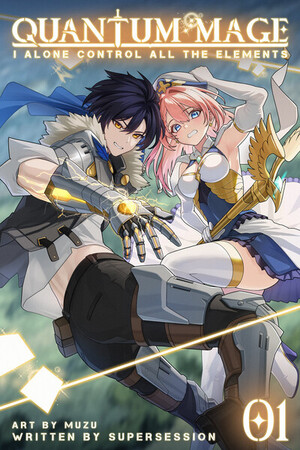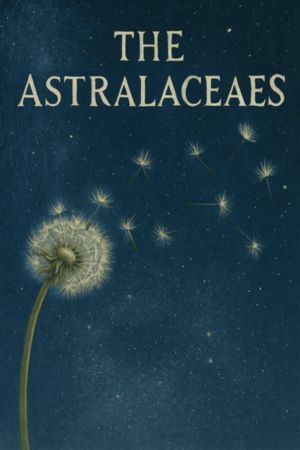Chapter 73:
Chapter 59 – The Archivist’s End
The Archivist of Lost Eras
Part 2: The Stone That Remembers
The Tree's heart beat like an open wound.
It was not a place but a collapse—a storm of memory-threads, shards of faces, voices torn from their anchorage. Each thread snapped out, trying to get entangled in Yusuf, clutching greedily at what remained of him. Already half his existence was tangled: he could not recall the face of his childhood friend, nor the sound of Cairo in the evening, nor the taste of apricots his mother used to peel for him.
But he stood nonetheless.
The Codex churned within him like a second heart. Centuries rested upon him, and he knew he had but one credit to his name before the Tree consumed him wholly.
He placed his hand on the Codex. Its pages unfolded within him, bleeding across the air, spilling ink into the storm. Each line was one of his memories, written not in letters but in presence—the scent of dust on museum shelves, the tremble of his hand when he first opened a missing manuscript, the laughter of the faceless child who had never been given a name but had nonetheless been real.
The Tree shrieked, threads whipping the Codex, trying to rip it from his grasp. But Yusuf clutched it closer, crying above the storm.
"You can't have everything," he said to it, though his throat was bleeding. "Some things will remain. Not in lists. Not as names. But as love."
The threads shrieked. They pierced him from head to toe, through his arms, his chest, his eyes. But still he pushed forward until he stood in the middle.
There, floating in the middle of the wound, was a shape: not quite a fruit, not quite a seed. It pulsed, slow and heavy, each beat sending another ripple of hunger out into the world. The Tree's own heart.
Yusuf waved the Codex.
It had always been his burden, his sword, and his anchor. Today, it would be his coffin.
He thrust the Codex into the heart.
Light blazed forth—not gentle but mind-searing, as if all the suns lost in broken ages had flared at once. The storm of memory howled, fibers unraveling, unraveling. The Codex groaned, its spine snapping, its pages whipping into the void. Ink oozed upwards like mist, clustering into constellations that glimmered overhead.
But the Tree struggled. Its fibers lashed him, tearing loose the last strips of self.
He forgot his memory of his mother's voice.
He forgot his memory of his first kiss.
He forgot his memory of the museum smell, the smell that kept him sane on Earth.
Yusuf was pieced away.
But even while he did, something of him lived on. Not a roll call of names. Not a sterile record. Something more human. The weight of the comrade who had battled alongside him in the desert war. The unspoken camaraderie of Rae in the city that wished to forget. The belief of the nameless child, who had clung to him even when there was no name. And the fading whisper of his father—Yusuf?—before it was gone.
These were not claims in a ledger. These were bonds.
And bonds could survive beyond erasure.
His body stumbled, fell, but his will inscribed one last command into the air.
"Then let there be a keeper. If I cannot be whole, let something of me be true.".
The spilled ink of the Codex hardened, becoming unpossessibly solid as it dropped. It wrapped itself around the shape of stone, shaping itself to his will, not to the will of the Tree's hunger but by his own desire.
A statue rose up out of the storm.
It was not ideal marble. It was battered, marred, unfinished. But on its surface was the semblance of Yusuf: weary, resolute, eyes slanted toward a horizon that was lost. Wrapped around its chest were spirals of ink like ribs, clasping the Codex's last piece—an open page in stone.
Yusuf pressed his hand against the form that was taking shape. His skin quivered, now transparent, but his palm sank into the stone, dark as ink.
"This will recall," he breathed. His voice quavered, cracking. "Not names. Not history. But what it cost. What it meant.".
The Tree howled, a cry of emptiness. The heart recoiled, folding in on itself as its own hunger grew to devour it. But the statue remained, a stake driven into the wound. The threads which had previously torn Yusuf apart instead ensnared the stone, clinging to that instead of to him.
Yusuf collapsed onto his knees.
He could feel himself disappearing, as if with each breath he turned to powder. His hands were see-through, his chest a shadow. But in the moments before the end, he reached out a trembling hand towards the statue's face.
"I leave myself here," he whispered. "So that the world will not forget love."
The eyes of the statue, carved in ink-stone, looked like they were gleaming. Looked alive.
For a moment, for a heartbeat, Yusuf had believed he heard the voice—his own voice, and another's—calling out: You are remembered.
He smiled amidst tears that came no longer. His body dissolved, fell apart into dust, into threads, into nothing.
And the statue remained.
Then the silence.
The tempest ceased. The strings that had burst before now wrap around the statue in quiet, drawn into its carved pages, its ink-stone veins. There was mass where there had been ruin. There was mooring where there had been starvation.
The heart of the Tree no longer pulsed with desolation. It pulsed with remembrance—not devouring, but keeping.
In the slumped corner, Yusuf's father stayed on, muttering softly. His vision did not notice the change. He would never know. But when a loose thread brushed against his skin, it carried not nothing but heat. His muttering faded softer, and for one breath, he looked less empty.
Elsewhere—through all the shattered worlds—something changed.
The desert ally opened his eyes in a world remade, looking at wreckage now remade.
Rae looked from the deserted city to see the sky no longer bleeding.
The faceless child—reborn, not as Yusuf had known them but as something more free—awakened their eyes in a dawn that was real.
None of them remembered Yusuf. Not by name. Not by legend.
But in each of their hearts was a foreign ache, a foreign warmth, as if someone once held their hand in the dark.
And at the Tree's center, stood the statue.
There was no placard. No nameplate. Only the unyielding, ink-black print of a hand against its chest.
The hand of the Archivist.
The one who recalled not just to let the world know, but to let the world love.
And even when Yusuf was gone, when his voice had dispersed into dust, when his memories had been ripped asunder beyond possible recovery, something of him remained.
Not enough for legend. Not enough for history.
But enough for eternity.




Please sign in to leave a comment.